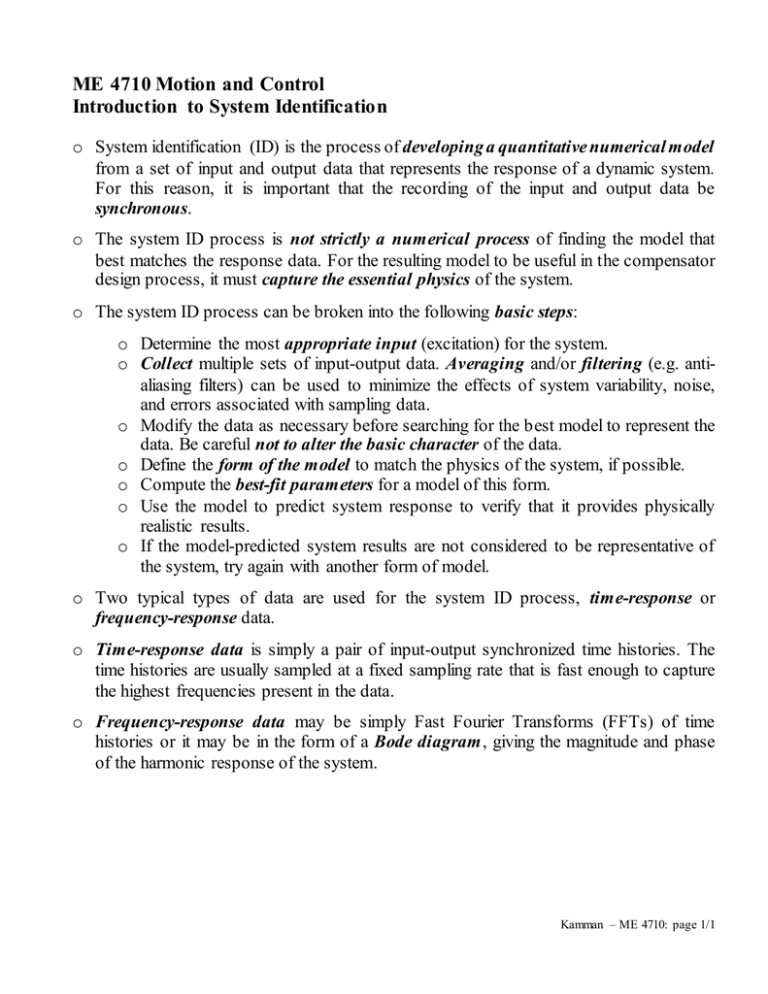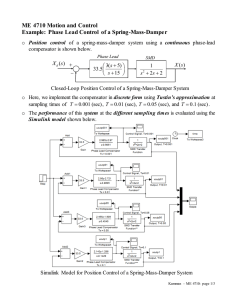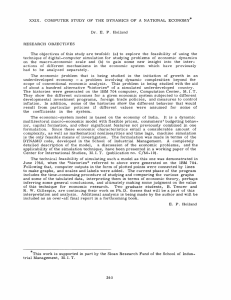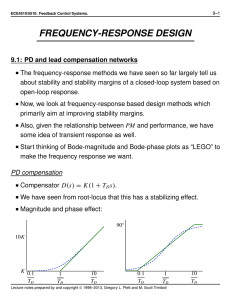ME 4710 Motion and Control Introduction to System Identification
advertisement

ME 4710 Motion and Control Introduction to System Identification o System identification (ID) is the process of developing a quantitative numerical model from a set of input and output data that represents the response of a dynamic system. For this reason, it is important that the recording of the input and output data be synchronous. o The system ID process is not strictly a numerical process of finding the model that best matches the response data. For the resulting model to be useful in the compensator design process, it must capture the essential physics of the system. o The system ID process can be broken into the following basic steps: o Determine the most appropriate input (excitation) for the system. o Collect multiple sets of input-output data. Averaging and/or filtering (e.g. antialiasing filters) can be used to minimize the effects of system variability, noise, and errors associated with sampling data. o Modify the data as necessary before searching for the best model to represent the data. Be careful not to alter the basic character of the data. o Define the form of the model to match the physics of the system, if possible. o Compute the best-fit parameters for a model of this form. o Use the model to predict system response to verify that it provides physically realistic results. o If the model-predicted system results are not considered to be representative of the system, try again with another form of model. o Two typical types of data are used for the system ID process, time-response or frequency-response data. o Time-response data is simply a pair of input-output synchronized time histories. The time histories are usually sampled at a fixed sampling rate that is fast enough to capture the highest frequencies present in the data. o Frequency-response data may be simply Fast Fourier Transforms (FFTs) of time histories or it may be in the form of a Bode diagram, giving the magnitude and phase of the harmonic response of the system. Kamman – ME 4710: page 1/1










